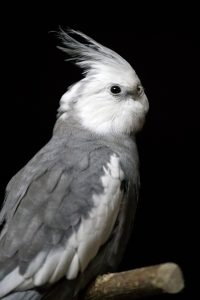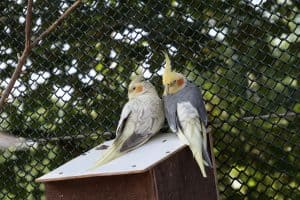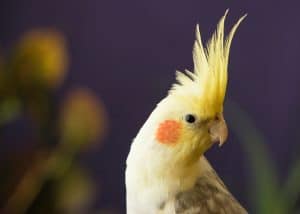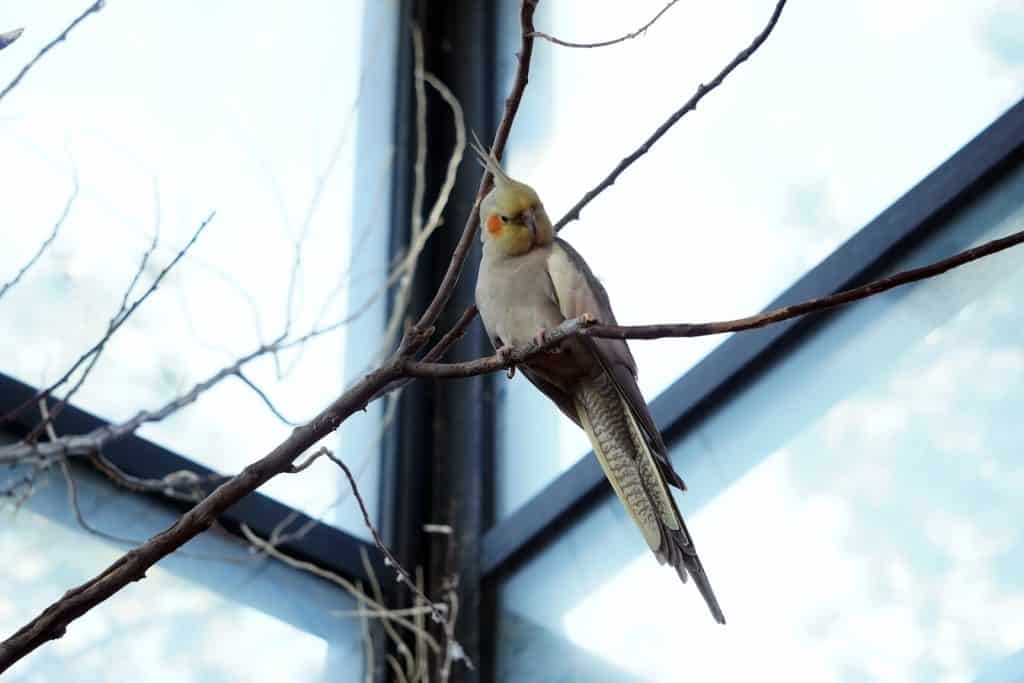Egg binding is a common reproductive health issue that can affect female bird. It occurs when an egg becomes stuck in the reproductive tract, and the bird is unable to lay it. Egg binding in cockatiels can be life-threatening if left untreated, as it can cause egg yolk peritonitis, a serious infection that can lead to organ failure.
Today, we will discuss the causes, symptoms, and diagnosis of egg binding in cockatiels, as well as potential treatment options to help prevent this condition from becoming a serious health issue for your pet bird. Egg binding in birds is a topic of particular concern for bird owners, and it is important to be aware of the signs and symptoms to ensure prompt veterinary care when necessary.
By understanding the causes and symptoms of birds egg binding, you can take steps to prevent this condition and ensure that your feathered friend remains healthy and happy. Let’s explore this topic in more detail!
Symptoms of Egg Binding in Cockatiels
The symptoms of egg binding in cockatiels can vary, but there are a number of common signs that may indicate your female birds is experiencing this condition. Some of the most common symptoms of egg binding in cockatiels include:
- Straining: A cockatiel that is experiencing egg binding may appear to be straining or pushing, as if trying to lay an egg. This may be accompanied by vocalizations such as squawking or chirping.
- Lethargy: A cockatiel with egg binding may also appear lethargic, weak, or inactive. This can be a sign of pain or discomfort, and the bird may be reluctant to move or fly.
- Loss of appetite: Egg binding can cause a cockatiel to lose its appetite, which can lead to weight loss and dehydration if not addressed promptly.
- Distended abdomen: A cockatiel with egg binding may have a visibly distended abdomen, which can be a sign that an egg is stuck in the reproductive tract.
- Tail-bobbing: Tail-bobbing is a common sign of respiratory distress in birds, and may indicate that a cockatiel with egg binding is struggling to breathe.
If you notice any of these symptoms in your cockatiel, it is important to seek veterinary care immediately. Egg binding can be a serious and potentially life-threatening condition, and early diagnosis and treatment can make all the difference in ensuring a positive outcome for your bird.
Causes of Egg Binding in Cockatiels
There are several factors that can contribute to the development of egg binding in cockatiels. These include:
- Improper diet: A diet that is lacking in calcium, vitamins, and minerals can increase the risk of egg binding in cockatiels. A lack of calcium can lead to weak egg shell, which can break or become lodged in the reproductive tract, can cause excessive egg laying and hormonal issues.
- Stress: Stressful situations, such as a change in environment or routine, can cause a cockatiel to stop laying eggs or to become egg-bound. This is because stress can disrupt the hormonal balance that regulates the reproductive cycle.
- Lack of exercise: Cockatiels that are not given enough opportunity to exercise may experience reduced muscle tone in the reproductive tract, making it more difficult to lay eggs.
- Age: As a cockatiel ages, its reproductive system can become less efficient, which can increase the risk of egg binding.
- Breeding: Cockatiels that are bred frequently or at a young age may be more prone to egg binding due to the strain that breeding places on the reproductive system.
It is important to note that egg binding can also be a symptom of an underlying medical condition, such as egg yolk peritonitis, which can cause fluid buildup in the abdomen and put pressure on the reproductive tract. If you suspect that your cockatiel is suffering from egg binding, it is important to seek veterinary care as soon as possible to determine the underlying cause and to provide appropriate treatment.
Diagnosis of Egg Binding in Cockatiels
Diagnosing egg binding in cockatiels usually involves a combination of physical examination, radiography (x-rays), and blood tests. Your veterinarian or long beach animal hospital will first perform a physical examination to check for signs of egg binding, such as a distended abdomen, chronic egg layers or straining behavior. They may also perform a cloacal exam to determine if an egg is stuck in the reproductive tract.
If an egg is suspected to be stuck, an x-ray may be performed to confirm the diagnose egg binding and to determine the size and position of the egg. Blood tests may also be performed to check for signs of infection, dehydration, or electrolyte imbalances that can occur as a result of egg binding.
In some cases, your veterinarian may need to manually extract the egg or perform surgery to remove it. This is typically done under anesthesia and requires careful monitoring to ensure the safety and well-being of your bird. After the egg is removed, your veterinarian may prescribe antibiotics or other medications to prevent infection and promote healing.
It is important to seek veterinary care as soon as possible if you suspect that your cockatiel is experiencing egg binding. This can help to prevent serious complications and improve the chances of a successful outcome.
Egg Binding in Cockatiels – Treatment
The treatment of egg binding in cockatiels will depend on the severity of the condition and the underlying cause. In some cases, simple interventions such as providing a warm and quiet environment, increasing your bird’s calcium intake, and encouraging exercise may be enough to help your bird pass the egg.
However, if the egg is stuck or if your bird is showing signs of pain or distress, more aggressive treatment may be necessary. This may include:
- Manual extraction: In some cases, your veterinarian may be able to manually extract the egg from the reproductive tract using specialized instruments. This is typically done under anesthesia to minimize pain and discomfort for your bird.
- Hormonal therapy: Hormonal therapy can be used to stimulate egg laying and help your bird pass the egg. This may involve the use of synthetic hormones or hormone-containing implants.
- Surgery: If the egg cannot be removed manually or through hormonal therapy, your veterinarian may need to perform surgery to remove it. This is typically a last resort and is only done in severe cases where other treatment options have failed.
- Supportive care: In addition to these interventions, your bird may require supportive care such as fluids, antibiotics, and pain medication to help manage the symptoms of egg binding and prevent complications.
It is important to seek veterinary care as soon as possible if you suspect that your cockatiel is experiencing egg binding. With prompt treatment, most birds will recover fully from this condition and go on to live happy, healthy lives.



